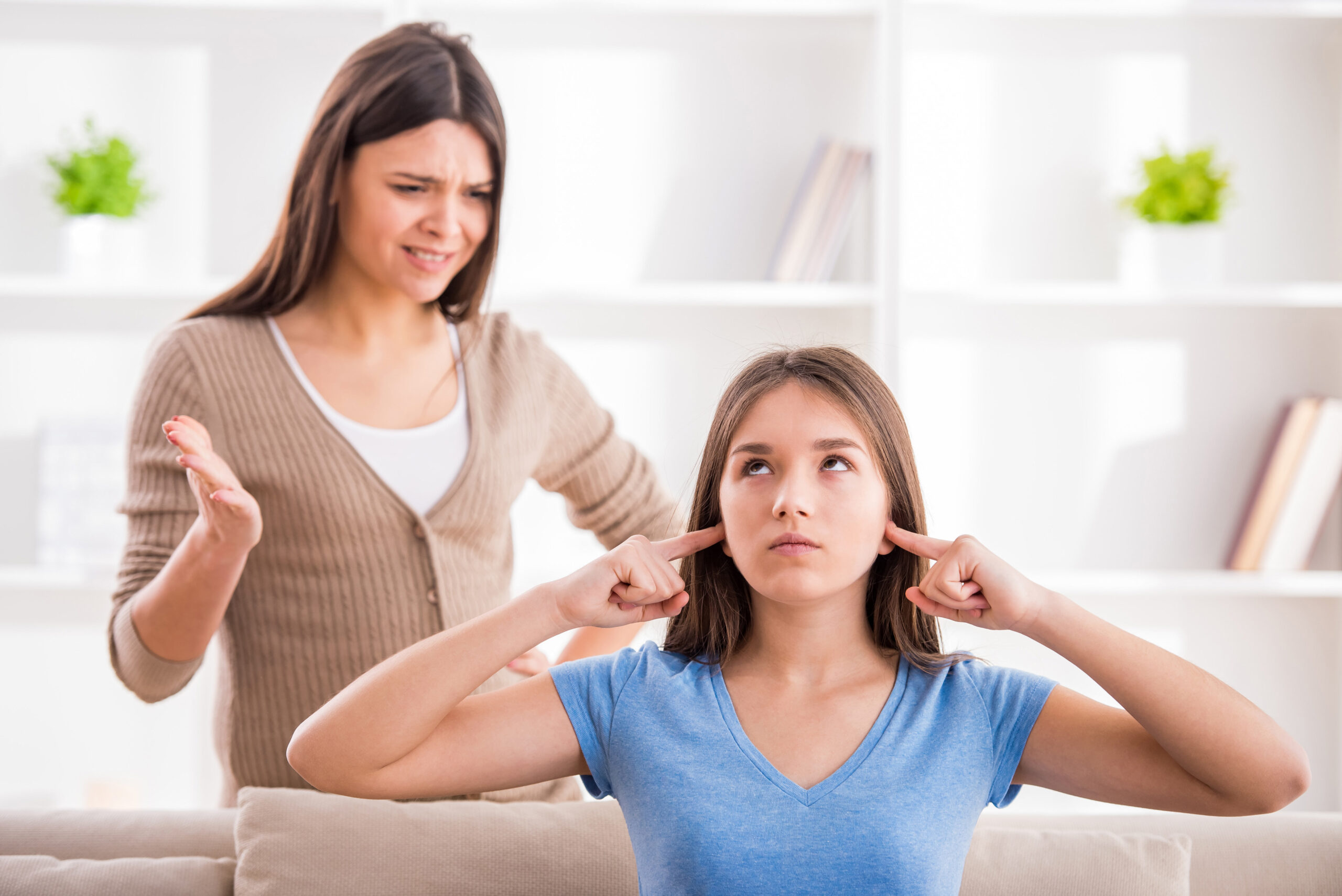Teenage is a crucial phase for both kids as well as parents. As a mother, it’s important for you to prepare yourself mentally so you can smartly handle this monumental transition in your child’s life. P. Shraddha shares notes on teenage parenting to make the job easy for you.
"You just never get me, Mom!” Have you often been left staring at the door of your teenage child’s room after s/he has told you this and slammed it or encountered a round of intense eye-rolling, back talking and snide comments? Welcome to the land of teenagers – the land where you, as a parent, can almost never be right. No matter how hard you try, you find it tough to strike a good rapport with your child when s/he enters the age group of 13-19 years. Here are a few things that you need to keep
in mind.
Peer pressure is not an excuse
“Sometimes, I fear my son may never have the capability to take charge or make decisions of his own. He is so used to doing what his best friend does,” rues Shital Shah, a Mumbai resident and mother of a 17-year-old. The truth is that children do get obsessed with their friends to such an extent that parents may not be able to fathom. Researchers at the University of California, Los Angeles, have discovered that teenagers register social rejection as bodily injury or pain in their brains. A teenager’s identity is often closely tied to his friends. Their disapproval or social rejection can make the child feel as bad as a punch in the gut; or even worse. Your child, like every other teenager, will experience a disorder called FOMO, ‘Fear of Missing Out’. Staying tuned into what others are doing, wearing and thinking is critical to them. Instead of expecting a strong sense of individuality right now, be your child’s friend and understand his/her state of mind.
Do not disturb
“She’s in her room all day. God knows what crazy experiment she’s working on!” mentions Pramila Kulkarni, a working mother of two teenage girls in Pune. You’ll find your teenaged kids skipping dinners and family functions and refraining from socialising with relatives s/he loved earlier. You’ll find them locking themselves in their rooms listening to loud music or chatting online. Don’t let that make you think they are growing up to be a rebellious or anti-social. Give them space and make them understand that you trust them, which they may never acknowledge but will silently admire. Give them time to be on their own, so they can find out what they like or dislike; this is important for the development of their personality. However, ensure that they are not left alone all the time.

Mobile over-usage is common
“Ankita is always on her phone, either texting, calling or surfing. I just don’t get this! When we were given a phone, we used it only for staying in touch with our family and close friends. Things are so different now,” cries Kolkata resident Madhuri Sen, on being asked what she thinks about her daughter’s mobile usage. Parents need to understand that their children belong to a generation where maps have been replaced by GPS, calls have been replaced by WhatsApp messages and emotions by emoticons. Having said that, addiction is never a good thing. If you find your children using their mobile phone excessively, reason with them. Do not be harsh on them if they are constantly hooked onto the phone. Mild rules like ‘no mobile phones’ on the dinner table or when they’re studying or in the middle of an important conversation will ensure peace in the house.
Self-discovery can be tough
During teenage years, children are on a journey of self-exploration. “There is an urgency to make something of oneself, plunge into the social world, fire up new varieties of relationships, leap into love and heroic adventures, take on risky and unfamiliar responsibilities, choose a direction in life, seek a mate or lover, develop a style, a flair, a name, a gig, a special talent, a distinctive personality,” says Bill Plotkin, author of Nature and the Human Soul. As a parent, you have to understand that while discovering themselves, your children go through a lot of hormonal changes which make them throw tantrums. They try to seek more independence. While doing that, they get disrespectful. However, their disrespectful nature only means that they are perfectly normal and healthy. The late child behavioural therapist James Lehman, who worked with struggling teens and defiant kids with behaviour problems, wrote in his book, Transform Your Problem Child, “While it’s important to allow for the natural ‘breaking away’ process that comes during the teenage years, parents also have to be sure to identify and challenge any truly disrespectful child behaviour that is hurtful, rude or demeaning to others.”
Decision-making is important
Accept that your children will make naive choices that could be detrimental. They may disobey you, do something they want to and may regret it later. But let them do it anyway and make mistakes. This is the time for your kids to go through various experiences. Let them fall and let them learn to pick themselves up. This will help build the foundation of a headstrong adult. How parents behave with their children during their teenage years is one of the key factors that affect the personality of the latter. So handle them with the right amount of love, care and restrictions, and you’ll have shaped up a responsible adult.
Bridge the generation gap
Understand that things were different when you were a teenager. But you have to move with the changing times. Surprise your children. Try to be a ‘cool mom’ for their friends. There’s no harm in pushing the deadline, lifting the curfew or discussing their crushes once in a while. What most children need at this age is a friend who they can confide in; someone who doesn’t judge them or constantly tells them the difference between right and wrong; someone who laughs at their mistakes with them and learns from them. Let your kids teach you a thing or two. Learn from them some applications in mobile phones or the decoding of computers to break the ice. Be a friend to your kids. Show them that you can be the best friend they can probably have! That’ll just get you closer to them.


